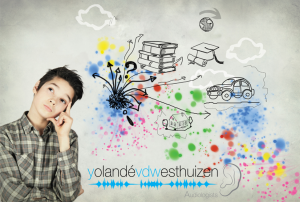
Does my child have auditory processing difficulties or a hearing loss?
Our ears are the way our brain captures the sound but the true hearing happens in our brain. Our auditory processing abilities is how we transcribe the message received in our brains from our ears.
Children with auditory processing disorder (also known as APD) cannot process what they are hearing in the same manner as other children or adults do. Children with APD often struggle with basic tasks such as following instructions or singing along to a song, which leads to parents and teachers fearing that there is hearing loss. There are different types of APD and each has its own unique characteristics and treatment options. APD ranges from mild to more severe difficulties.
There is limited information and misconceptions in the world regarding APD. The cause of APD is unknown therefore we cannot pinpoint it to a direct link causing a child’s difficulties.
Our central nervous system uses information from our auditory system for memory, attention and languages to decode information in a meaningful way. We often mistake children with APD for a child with ADHD or other learning difficulties. That is why education of APD is key!
Currently, parents are faced with the doubts of whether their child has a hearing loss because he/she can speak but struggles with following instructions and doing poorly in school. Let’s just calm the nerves by saying that there is a big difference between hearing loss and APD. Although it might present itself as hearing loss, APD is diagnosed in children that are above the age of 7 with normal hearing sensitivity. It’s important to know that an audiologist will say that a child needs to be 7 years old or older when conducting testing for APD. The areas of the brain responsible for our processing is not yet fully developed at a younger age. And we don’t want to misjudge terrible toddler and preschool stages for APD.
Here are some RED FLAGS for you as a parent to look out for:
- Difficulty with spelling, reading and understanding verbally presented information in the classroom
- Difficulty understanding speech when the environment is noisy
- Difficulty with following directions or instructions
- Asking for repetition and or clarification
- Struggling to tell the difference between similar sounds
- Typically, unable to complete a task by themselves if they don’t understand what is expected from them.
- Difficulty understanding rapid speech
- Seems like they are living in their own world and ignoring a person when spoken to
You think your child might have APD but you are unsure what is the next step to help them?
Make an appointment at the audiologist to discuss your concerns. A hearing test will be done to determine that your child has normal hearing sensitivity. If normal hearing sensitivity is determined, APD testing will be done to determine the diagnoses. There will be a team of professionals that may assist to understand the overall areas of strengths and weaknesses of your child.
There are strategies that can be applied at home to ease the problems that your child might be experiencing:
- Always look at your child when speaking to them
- Background noise is the biggest thief of understandability – so eliminate it
- To complete a task, we need to break up instructions into pieces
- Ask for repetition to know that they understood what is being said to them
- Teach your child to identify when an environment is too noisy and stand up for themselves to ask people to quiet down
Please do not hesitate to contact us if you are uncertain if your child is possibly struggling with auditory processing difficulties or a hearing loss.
The journey to helping your child can start with a basic diagnostic hearing test!
Here is a handy brochure about hearing loss in children:
Wierdapark – 012 653 3830
Saxby Medicross – 087 944 1803
Benoni – Northmead – 011 425 0171
*Author: Marike Haasbroek (YVDW Audiologists)*
